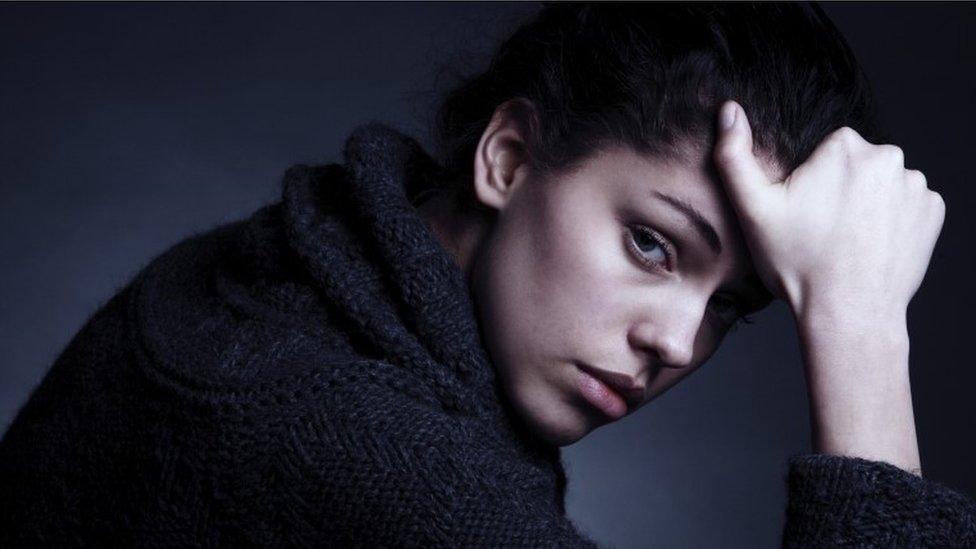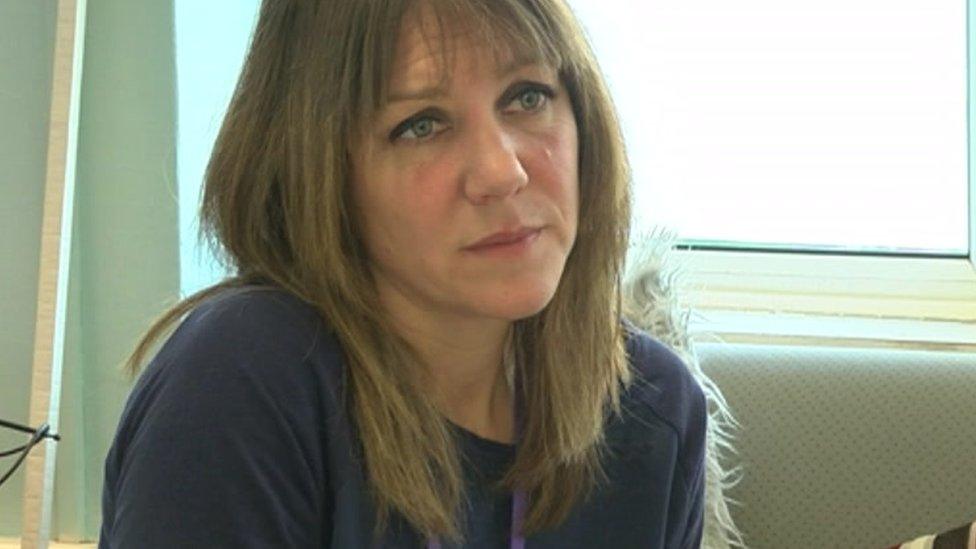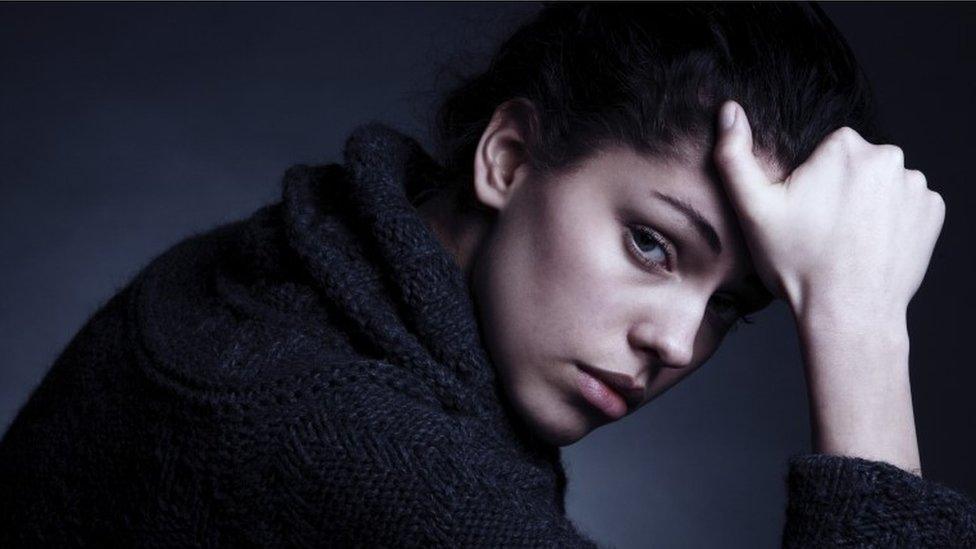Yorkshire coercive control arrests triple over three years
- Published

Charity Mums in Need said securing funding to support victims is a struggle
Arrests for coercive and controlling behaviour have more than tripled in Yorkshire over three years.
Coercive control is a form of domestic abuse, with often leaves victims isolated from friends, family and colleagues.
It became a crime in 2015, and in 2018 forces in the region made more than 930 arrests for the offence.
Laura Riley, from the Mums in Need charity, said more support was needed to cure "emotional scars" many suffer.
"When people come to Mums in Need they say a lot of organisations don't understand them," said Ms Riley, who set up the charity in Sheffield in 2013 to support mothers suffering abuse.
In North, South and West Yorkshire, police made 290 arrests for the crime in 2016, but by 2018 this had increased to 931.

Signs of coercive control
A victim's self-esteem is constantly chipped away and they may become isolated from family and friends - instead becoming increasingly reliant on someone who inflicts assault, threats, humiliation and intimidation.
Legally, it is controlling behaviour with a "serious effect" which causes serious distress or fear of violence at least twice.
As with many domestic violence crimes, the number of convictions is far lower than the number of accusations.
Common signs include:
Being stopped from working or going to school/college/university
Having money taken away or controlled
Being isolated from friends and family
Having access to food, drinks and day-to-day products restricted
Having social media accounts monitored or controlled
Being told what to should wear
Being threatened with violence if the individual does not behave in a certain way
Having threats made to loved ones or pets
Source: Women's Aid

Supt Shelley Hemsley, of South Yorkshire Police, said men and LGBT people may find it particularly hard to come forward.
"Some victims don't necessarily recognise their suffering comes from this behaviour," she said.
"I really want to reach out to all victims. Please be confident to come forward and report it."
Mums in Need supports many women facing custody battles and mental health struggles.
One victim, who wanted to remain anonymous, said: "I'd get in the car and drive up and down but I had nowhere to go because I'd been isolated.
"He controlled all the money, even though I earned it, and he'd threaten suicide if I ever tried to leave."

Laura Riley started the charity to focus on mothers, because often children are used in coercive control situations

Follow BBC Yorkshire on Facebook, external, Twitter, external and Instagram, external. Send your story ideas to yorkslincs.news@bbc.co.uk, external.
- Published21 September 2016
